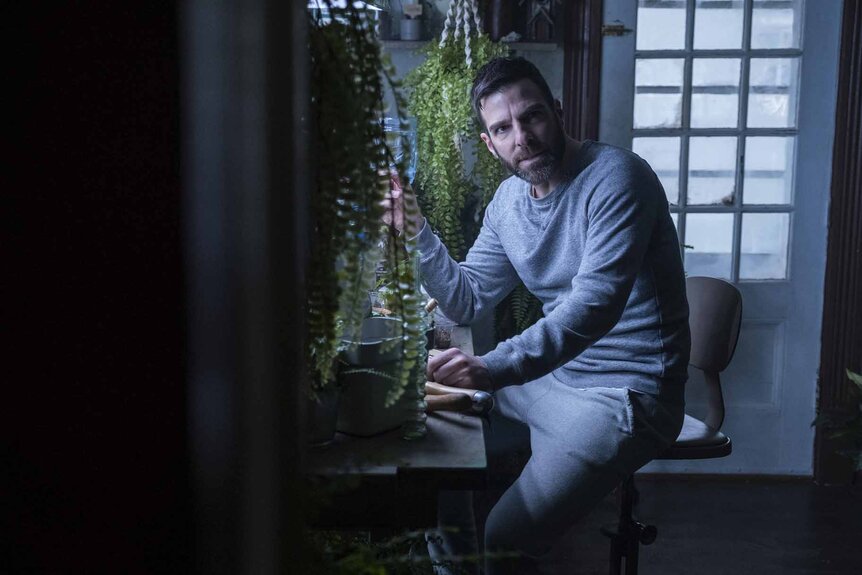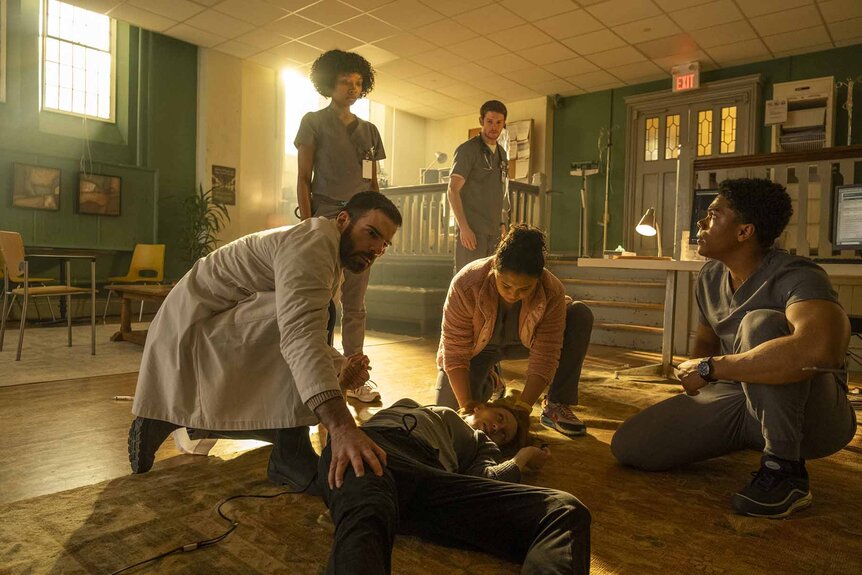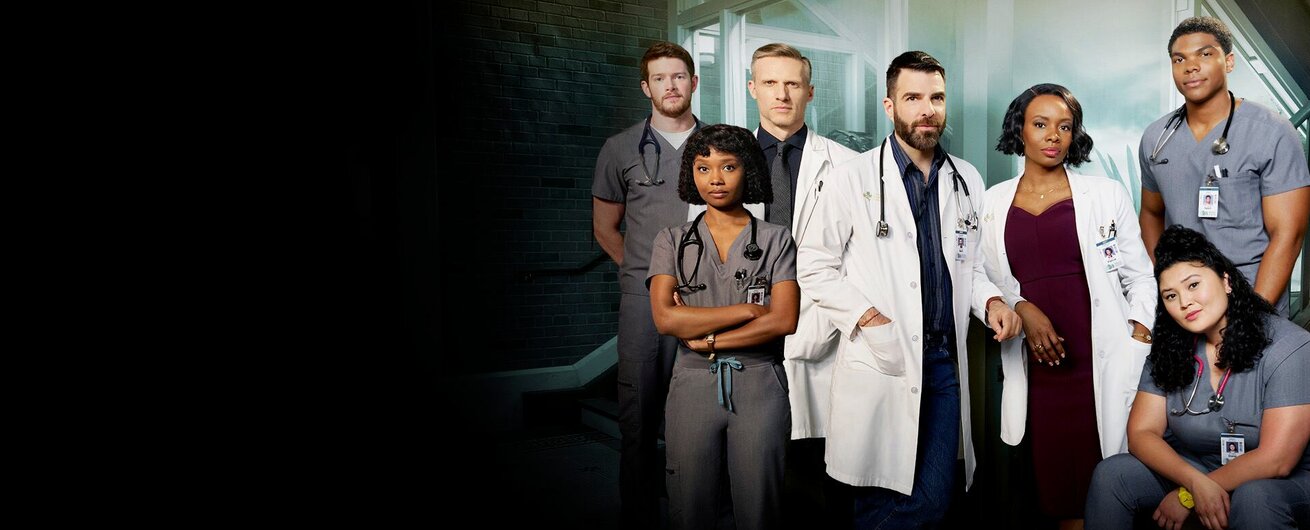Understanding Face Blindness: Seeing Through the Eyes of Brilliant Minds' Dr. Wolf
Zachary Quinto's Dr. Oliver Wolf uses his face blindness to better understand his patients in Brilliant Minds.

Upcoming NBC medical drama Brilliant Minds stars Zachary Quinto as Dr. Oliver Wolf, a neurologist working at Bronx General Hospital. He knows a thing or two about brain disorders, having lived with one all his life.
Wolf is based on a real-world neurologist Dr. Oliver Sacks, whose work focused on the study and documentation of a number of neurological disorders, including his own. Like the Brilliant Minds character he inspired, Sacks had prosopagnosia, a condition commonly known as "face blindness."
But what is face blindness? We're here to discuss the condition as well as Dr. Sacks' work with it and other conditions over the years.
RELATED: How Brilliant Minds Is Taking Inspiration from This Is Us and Will & Grace Over ER
Brilliant Minds, which premiered on September 23 on NBC, is loosely based on the life and writings of Dr. Sacks. While it’s not exactly biographical, the series will draw on his approach to medicine and base much of its main character's personal life — including navigating his prosopagnosia — on Sacks.
In the premiere episode, we get to see the world through Dr. Wolf's eyes: people's faces are a disconcerting, distracting blur, and it often makes him seem like — to put it in his new interns' words — "a dick."
As fans get to know more about Dr. Wolf and his diagnosis throughout the season, we thought it would be helpful to have a sort of primer on face blindness at the ready ... Read on for more.
What is face blindness? Prosopagnosia is actually quite common
Individual cases of face blindness have been reported for at least the past couple of centuries, but German neurologist Joachim Bodamer was the first to formally document the condition, which he dubbed prosopagnosia. The condition presents with variable degrees of severity and may be present in as many as 1 in 33 people.
Prosopagnosia is generally associated with brain damage, though a small percentage of cases are congenital or developmental in origin. It's often a result of damage to the fusiform gyrus, a part of the brain associated with facial recognition, or nearby areas. The fusiform gyrus is what allows most of us to recognize faces more readily than we could recognize or parse similarly complicated objects.
It’s been suggested that prosopagnosia results from the brain’s inability to construct individual facial features into a cohesive whole. Sacks discussed his own experience with prosopagnosia in a 2010 New Yorker article titled “Face-Blind,” in which he recalls difficulty recognizing faces for as long as he can remember. It didn’t become a problem, however, until he was a teenager and classmates interpreted his behavior as snobbishness. They saw it not as a problem of perception, but one of character.
For Sacks (as for many others), the challenge was not isolated to just faces. When commuting to or from home, he had to take the exact same route every time or else risk becoming lost. By taking the same streets and the same turns every time, Sacks could maintain a consistent context and be relatively confident in arriving where he intended. Context was also important in identifying people. In an office setting, for instance, a person with face blindness might identify co-workers by certain features (a hairstyle, a penchant for colorful ties, a particular walking gait, etc.) but outside that context, those identifiers aren’t as clear.
RELATED: Meet the Brilliant Cast Behind NBC's Medical Drama Brilliant Minds
Sacks recalled the condition leading to amusing stories, like apologizing for almost running into someone only to realize he was looking at his own reflection in the mirror (Sacks also struggled to recognize his own face), while making clear it could also be heartbreaking.
People with prosopagnosia may struggle to perform activities like grocery shopping or picking up the kids from practice. He also noted that it made it hard for him to make and maintain relationships. His inability to recognize faces was often interpreted as shyness, reclusiveness, social ineptitude, eccentricity, or autism.
Dr. Oliver Sacks' work with prosopagnosia and more
Dr. Sacks may have struggled to perceive faces, but he had no trouble seeing people. Brilliant Minds draws from a pair of Sacks’ books: The Man Who Mistook His Wife for a Hat and An Anthropologist on Mars.
The former is a collection of case studies describing the neurological ailments of his patients. The book takes its name from a case involving a patient identified as “Dr. P.” The patient has visual agnosia, a condition similar to face blindness, but it makes it difficult for people to recognize a wider range of objects. Dr. P. could perceive individual features of objects, but he can’t identify them or place them as part of a whole object.
As the patient was leaving the room after a visit with Dr. Sacks, Dr. P grabbed hold of his wife’s head, having mistaken it for his hat. Other cases in the book include a woman who loses the ability to perceive her own body in space and who has to relearn to control her body through sight, a man who suddenly denies ownership of his own leg, and a woman who can’t perceive anything on her left, or even the concept of left.
An Anthropologist on Mars is made up of seven different case studies, including a painter who loses the ability to perceive color, a man with a brain tumor who can’t remember anything after 1960, a surgeon with Tourette syndrome whose symptoms suddenly disappear when he’s operating, and more.
RELATED: Brilliant Minds Creator Promises a Medical Drama That Isn't "Tidy"
The titular case describes Sacks’ experience with Temple Grandin, an academic and ethologist who often described her experience with autism as feeling like she was an anthropologist on Mars. Grandin has spoken about how her unique perspective allowed her to better understand animal behavior and led to the development of more human livestock facilities. Her story also served as the inspiration for the eponymous 2010 biographical drama starring Claire Danes.
The life and work of Dr. Oliver Sacks helped to expand awareness about neurodiversity and the myriad ways in which we can experience the world around us. It’s also the perfect source material for an entertaining and educational look inside our own minds, and there's no question that Brilliant Minds will have plenty of interesting true stories from which to pull.
New episodes of Brilliant Minds premiere on Mondays on NBC at 10/9c and are available to stream on Peacock.


















